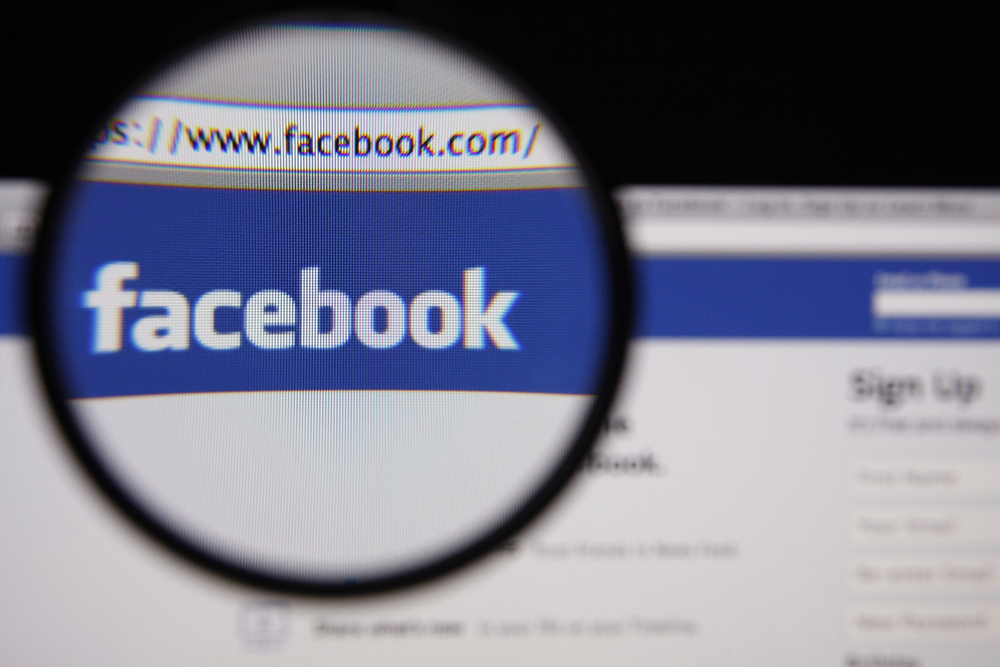American News
Facebook ads show Russian effort to stoke political division

One ad that targeted African-Americans concerned about discrimination was only to be shown to users accessing Facebook on Wi-Fi, rather than cellular. There was no explanation as to why that was. (ShutterStock)
WASHINGTON — Democrats on the House intelligence committee have released more than 3,500 Facebook ads that were created or promoted by a Russian internet agency, providing the fullest picture yet of Russia’s attempt to sow racial and political division in the United States before and after the 2016 election.
Most of the ads are issue-based, pushing arguments for and against immigration, LGBT issues and gun rights, among other issues. A large number of them attempt to stoke racial divisions by mentioning police brutality or disparaging the Black Lives Matter movement. Some promote President Donald Trump or Bernie Sanders, who ran against Hillary Clinton in the Democratic presidential primary. Few, if any, support Clinton.
The intelligence committee Democrats released a sampling of the ads purchased by Russia’s Internet Research Agency last year, but they are now releasing the full cache of ads that Facebook officials turned over to the panel after acknowledging in September they had discovered the Russian efforts. The release of ads from early 2015 through mid-2017 does not include 80,000 posts that the agency also shared. Some of the ads are partially redacted, part of an effort by Facebook and the committee to protect unsuspecting people whose names or faces were used.
An Associated Press review of the thousands of ads and their data shows how precisely — and sometimes randomly — the agency targeted them.
Some ads designed to appeal to critics of immigration were targeted to users who liked specific Fox News hosts, WikiLeaks founder Julian Assange, “Old Glory” and the United States Constitution, among other words.
Others were more narrowly targeted. Facebook users within 12 miles of Buffalo, New York, were directed to an event supporting justice for a black woman who died in a county jail. Another ad criticizing a Texas school teacher who lost her job after making racist remarks was aimed at adults living in Cleveland, Baltimore, St. Louis and Ferguson, Missouri.
One ad that targeted African-Americans concerned about discrimination was only to be shown to users accessing Facebook on Wi-Fi, rather than cellular. There was no explanation as to why that was.
Sometimes the targeting appeared to work — after a try or two. A January 2016 ad that promised news on “bad” refugees got five clicks when targeted at those interested in immigration or conservatism. But the same ad got 163 clicks when targeted at those interested in Syria, the Republican Party or politics.
Others got many more clicks. A pro-patriotism ad created on June 23, 2015 featuring a stylized drawing of a bald eagle was viewed nearly 530,000 times and was clicked on 72,000 times.
As the Russians attempted to pose as Americans, their language sometimes hinted at their origin. One ad railed against immigrants who “should prove that they are deserved to stay in the United States.” Another read: “Your life matter. My life matter. Black matters.”
Facebook revealed in September that it had discovered the divisive ads, which were paid for in rubles. Ads were still running in July and August of 2017, weeks before Facebook made the effort public.
In February, special counsel Robert Mueller indicted 13 Russians of an elaborate plot to disrupt the 2016 presidential election, charging several people associated with the Internet Research Agency with running a huge but hidden social media trolling campaign aimed in part at helping Trump defeat Clinton. The indictment was part of Mueller’s larger investigation into Russian intervention in the election and whether Trump’s campaign was involved. There has been no evidence that Trump’s campaign was in any way associated with the social media effort.
The trove of ads released Thursday appears to back the assertion that the Russians wanted to hurt Clinton. Some spread rumours about her husband, former president Bill Clinton, or promote lies about her. Several depict Clinton behind bars.
Hundreds of the ads ran after the election, continuing the effort to sow discord. A series of ads posted two days after Trump was elected urge his supporters to show up at Trump Tower in Manhattan to respond to the “massive crowds of libtards” who protested him. It targets people within 50 miles of New York City and provides the street address.
That was one of many ads that attempted to set up events — sometimes on opposing sides of an issue.
In May 2017, the fake group “United Muslims of America” ran seven ads promoting two June 3 protests against the war in Syria — one at Trump Tower, the other at the White House. One of those ads targeted people with interests in peace, human rights, feminism and pacifism and those who were “likely to engage with political content (liberal).”
Facebook has said that more than 10 million people in the United States saw the ads, more than half of which ran after the election. Under fire from Congress, the social media giant has pledged improvements to its ad policies and enforcement. Facebook has made it easier to see the origins of ads, is forcing buyers to be more transparent about who they are and has worked to find more fake accounts, among other changes.
California Rep. Adam Schiff, the top Democrat on the intelligence committee, said he was releasing the ads so it doesn’t happen again.
“The only way we can begin to inoculate ourselves against a future attack is to see firsthand the types of messages, themes and imagery the Russians used to divide us,” he said.





















